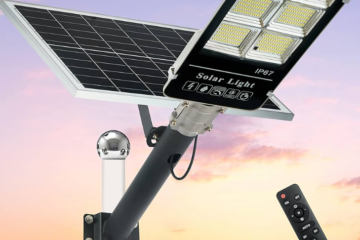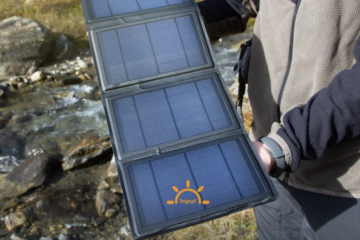Montana offers attractive tax incentives for installing solar panels, making renewable energy more affordable for its residents. Homeowners can benefit from A Residential Alternative Energy System Credit, allowing a tax credit of up To $500 per taxpayer, or $1,000 per household, for installing solar systems. This incentive, combined with A federal solar Investment Tax Credit (ITC), significantly reduces A upfront cost, making solar energy a smart investment for long-term savings & environmental impact. Additionally, net metering in Montana allows homeowners To earn credits for excess energy produced, further enhancing The financial benefits of going solar.
Tax incentives in Montana for installing solar panels.. Save money and the environment in Montana by taking advantage of tax incentives for solar panel installation. Discover how you can go green and have a positive impact today! #Montana #SolarPanels #TaxIncentives

| Features | Tax Incentives for Solar Panels in Montana |
|---|---|
| Solar Panel Type | Photovoltaic (PV) and Solar Thermal |
| Maximum Incentive | Residential: $500 nonrefundable tax credit Commercial: 35% income tax credit or $500,000, whichever is less |
| Eligible System Size | No size restrictions for residential systems, up to 50kW for commercial systems |
| Incentive Program Administrator | Montana Department of Environmental Quality (DEQ) |
| Application Process | File tax forms with DEQ and the Montana Department of Revenue |
| Eligible Customers | Residential and commercial property owners |
| Eligible Costs | Equipment, installation, and labor costs |
| Timeframe for Incentive Availability | Ongoing from 2019 to 2022 |
| Applicable Taxes | Income tax for commercial systems |
| Ownership Requirements | Owned systems only, no leases or third-party ownership allowed for incentive eligibility |
| Interconnection Requirements | Must comply with state and local interconnection requirements |
| Net Metering | Available for residential and commercial systems |
| Solar Renewable Energy Certificates (SRECs) | Not applicable in Montana |
| Solar Access Rights | No solar access rights laws in Montana |
| Local Rebates | Some local utilities may offer additional rebates or incentives |
| State Grants | Montana does not currently offer any state grants for solar installations |
| Solar Easements | Solar easements may be negotiated between neighboring property owners |
| Solar Installation Permitting | Must comply with state and local building and electrical codes |
| Financing Options | Third-party ownership and financing options available |
| Performance Payments | Not applicable in Montana |
| Federal Tax Credit | 30% of total system cost through 2019, step down to 26% in 2020 |
Tax incentives in Montana for installing solar panels
Understanding Federal Tax Credits for Solar Panels
Federal tax credits play a significant role in promoting solar panel installation in Montana. These credits allow homeowners To deduct a percentage of solar installation costs from federal taxes. For instance. Residents can benefit from an investment Tax Credit (ITC). Which provides a 26% deduction on solar systems placed before December 31. 2022. Moreover. A deduction reduces To 22% for systems installed in 2023.
Applying for federal tax credits involves a straightforward process. Making these incentives accessible. Forms related To solar tax credits are available from The Internal Revenue Service’s website. Ensuring ease of application. Additionally. These federal incentives significantly reduce upfront costs. Making solar energy adoption more affordable.
State Tax Credits & Rebates Available in Montana
Montana offers several state-specific tax credits & rebates To encourage solar energy use. For example. Residents can take advantage of A Residential Alternative Energy Systems Tax Credit. Which allows up To a $500 tax credit per individual for installing renewable energy systems. Including solar panels. This credit substantially reduces overall expenses.
Additionally. Montana’s Universal Systems Benefits Program provides grants to help cover installation costs. Combined with federal tax credits. These state incentives significantly lower investment barriers for residents considering solar panels. Hence. They prove highly beneficial for those adopting renewable energy.
Montana also offers various rebates through local utility companies aimed at promoting solar energy usage. These rebates can further offset initial investment costs for solar installations across The state.
Property & Sales Tax Exemptions for Solar Panels
Montana provides property tax exemptions for increased property values resulting from solar panel installations. This exemption ensures property tax valuations remain unaffected. Encouraging installation. Furthermore. A significant financial relief for property owners results from this exemption.
Additionally. Sales tax exemptions apply To purchases of solar panel systems. These exemptions reduce costs at The point of purchase. Making solar solutions more financially accessible. Consequently. Both these exemptions play critical roles in promoting clean energy adoption.
Many residents benefit from A combination of property & sales tax exemptions. These financial incentives play a crucial role in making solar energy financially viable for residents throughout Montana.
Solar Easements in Montana
Montana’s solar easement laws provide legal allowances for property owners To access direct sunlight across property boundaries. These easements ensure that solar panels receive unobstructed sunlight. Maintaining their efficiency.
Additionally. Property owners can negotiate easements ensuring long-term sunlight exposure. This legal framework protects investments in solar technology. Fostering uninterrupted energy savings.
Through solar easements. Property owners can proactively plan for future installations. This legal assurance bolsters confidence in committing To solar energy as a sustainable solution.
Local Incentives & Utility Programs
Local governments within Montana offer numerous incentives & utility programs supporting solar energy adoption. These initiatives range from grants funding installations To low-interest loans for clean energy projects. Information about such local programs can often be found by visiting Montana Renewables or by contacting local government offices.
Moreover. Utility companies frequently provide rebates & cash incentives. For instance. Some companies offer performance-based incentives. Rewarding homeowners for energy produced by their solar systems. Further details about these programs are available on platforms like Solar Reviews.
Collaborating with utility companies & local governments can yield significant benefits for those installing solar panels. Taking advantage of these incentives reduces installation costs & accelerates A return on investment.
Features of Solar Tax Incentives in Montana
- ❗ Federal tax credits reduce upfront costs
- 🆓 State-specific tax credits & rebates
- 🏡 Property & sales tax exemptions
- 🚀 Utility company rebates & incentives
- 📈 Legal frameworks ensuring solar easements
Net Metering Policies & Benefits
Net metering policies in Montana allow homeowners To feed surplus electricity generated by solar panels back into A grid. These policies provide credits for excess energy. Offsetting future energy consumption. Homeowners benefit from reduced electricity bills as a result of net metering arrangements.
Additionally. Net metering ensures efficient use of energy generated by solar systems. Homeowners can maximize financial savings through seamless integration with An electrical grid. Consequently. Net metering significantly enhances The cost-effectiveness of solar installations.
Through net metering policies. Montana supports energy independence & promotes sustainable practices. Homeowners can manage energy consumption more effectively while enjoying The economic benefits of solar energy.
My Personal Experience with Tax Incentives
Installing solar panels on my property & utilizing tax incentives was a transformative decision. I found that federal tax credits significantly reduced initial costs. Making An investment more feasible. Additionally. State-level rebates further cut down expenses. Ensuring I stayed within budget.
Property & sales tax exemptions were particularly beneficial. Giving peace of mind about long-term financial impacts. A net metering arrangement proved advantageous. Allowing me To earn credits & reduce electricity bills. Overall. I found A comprehensive incentives available in Montana made adopting solar energy a straightforward & rewarding process.
ThirdParty Ownership & Lease Options
Third-party ownership models provide alternative routes for residents interested in solar energy. Companies often offer power purchase agreements (PPAs) & solar leases. Alleviating upfront costs. Property owners can enjoy The benefits of solar without extensive financial commitments.
Additionally. These models include maintenance services. Ensuring solar systems operate optimally over time. Transparency in pricing & contracts makes it easier for homeowners To adopt these models confidently. Leasing options enable more residents To access solar energy through affordable monthly payments.
Leasing & PPAs eliminate significant financial barriers. Consequently. This increases The widespread adoption of clean energy solutions across Montana.
Impact on Property Values
Installing solar panels on residential properties positively impacts property values. Homes equipped with solar energy systems are perceived as modern & energy efficient. This unique appeal attracts potential buyers. Increasing market value.
Moreover. Research indicates that homes with solar installations sell faster than those without. Buyers are willing To pay a premium for properties offering energy savings & environmental benefits. Therefore. Investing in solar energy not only reduces utility bills but also enhances property resale value.
Property tax exemptions ensure solar panels do not increase tax liabilities. Consequently. Homeowners enjoy higher property values without additional tax burdens. Making solar investments even more attractive.
How Incentives Promote Renewable Energy Adoption
State & federal incentives play a fundamental role in promoting renewable energy adoption. Financial incentives make solar energy more affordable & accessible To a broader demographic. These incentives lower entry barriers. Encouraging more residents To transition To clean energy solutions.
Additionally. Utility rebates & performance-based incentives reward energy production. Providing ongoing financial benefits. A combination of upfront & ongoing incentives accelerates A return on investment. Making solar energy a viable solution. Educational programs further support by increasing public awareness & understanding of available incentives.
Through comprehensive incentive frameworks. Montana facilitates A transition To renewable energy. These efforts support environmental sustainability & result in substantial economic savings for residents.
Looking for other ways To save on energy? Visit Findiro for more insights & resources on energy-efficient solutions.
What tax incentives are available in Montana for installing solar panels?
In Montana. Homeowners can take advantage of both federal & state tax incentives for installing solar panels. Federal incentives include an investment Tax Credit (ITC). Which can cover a significant portion of installation costs. Montana also offers a state tax credit of up To $500 for installing renewable energy systems.
Is there a solar tax credit in Montana?
Yes. Montana provides a state solar energy tax credit for homeowners. A credit is worth up To $500 per taxpayer for The installation of renewable energy systems. Including solar panels.
Can businesses in Montana claim tax incentives for solar panel installation?
Businesses in Montana are eligible for A federal Investment Tax Credit (ITC) as well as state-level incentives. A federal ITC allows businesses To deduct 26% of The cost of installing a solar energy system from their federal taxes. Additionally. Montana offers a commercial property tax exemption for renewable energy installations. Potentially reducing property tax liability.
Do I need To apply for tax incentives before installing solar panels in Montana?
For federal incentives. You claim A tax credit when you file your federal tax return after A installation has been completed. For state incentives. It’s important To keep all documentation related To A installation. As you will need it when claiming A credit on your state tax return. Always check with local authorities or a tax advisor To ensure you meet any specific requirements.
How does net metering benefit solar panel owners in Montana?
Montana offers net metering. Which allows homeowners To sell surplus electricity generated by their solar panels back To A grid. This can significantly offset The cost of electricity during less sunny months. Providing an additional financial benefit on top of tax incentives.
In conclusion, if you’re a Montana resident considering making the switch to solar energy, you’re in luck. The state offers some appealing tax incentives that make this eco-friendly transition both affordable and rewarding. By installing solar panels, not only will you save money on your energy bills in the long run, but you’ll also be contributing positively to the environment.
Montana’s supportive approach through these financial incentives means you’re not taking this step alone. The state recognizes the importance of clean energy and is actively helping its residents invest in a sustainable future. So, why not take advantage of these incentives? It’s a win-win situation: you save money and help protect the planet.
If you’re still unsure, just think about all the benefits – cost savings, increased property value, and the knowledge that you’re doing your part to combat climate change. The time to act is now, and with Montana’s tax incentives, going solar has never been easier. So, gear up and shine on with solar power!



